
“Never Back Down 2: The Beatdown” DVD Cover
Director: Michael Jai White
Cast: Michael Jai White, Evan Peters, Alex Meraz, Dean Geyer, Todd Duffee, Scott Epstein, Jillian Murray, Lyoto Machida, Eddie Bravo, John McCarthy
Running Time: 99 min.
By HKFanatic
Michael Jai White’s been paying his dues in the movie industry for awhile now – he donned the billowy red cape of the titular hero in 1997’s “Spawn” and spin-kicked Jean Claude Van Damme’s ass through several sheets of glass in “Universal Soldier: The Return” (1999) – but it seems like the talented actor and martial artist is finally about to achieve the stardom he deserves. 2009 was a great year for White: the blaxpoitation riff “Black Dynamite” became an instant cult hit while action fans were treated to his best fight scenes yet in “Blood and Bone.” After a brief detour into the land of Tyler Perry, Michael Jai White has carried his genre movie momentum into this year with a starring role in the “Mortal Kombat: Legacy” web series and the film that might just be the culmination of all his hard work, his directorial debut “Never Back Down 2: The Beatdown.” Sony is rather unceremoniously releasing the film on Unrated DVD this September 13 but don’t let the lack of fanfare dissuade you. For fans of Michael Jai White, “Never Back Down 2” is a must see.
As a director, White makes a confident debut behind the camera. Sometimes they say if you truly want a meaty, dramatic role, you’ve got to make the movie yourself. Hey, it’s worked for guys like Kevin Costner and Clint Eastwood. And what I love about “Never Back Down 2” is that Michael Jai White gets to play the kind of character we don’t normally see from him. In “Black Dynamite,” he was basically poking fun at his own tough guy image; in “Blood and Bone” he was a stoic warrior who carefully chose each word. I wouldn’t say he’s more ‘laid back’ in “The Beatdown” but in his role as a teacher to four college-age Mixed Martial Arts students he gets to be a shit-talker, a mentor, a fighter, a father figure, and just an all around more relateable human being. This isn’t empty hype: “The Beatdown” is my favorite performance yet from White, who proves there’s more sides to him as an actor than we’ve previously witnessed. There’s a scene White filmed in close-up where he talks about his past and how Hurricane Katrina affected his family, and it’s the kind of authentic-feeling, emotionally-charged moment that White is rarely allowed to deliver. Although the screenplay’s main focus is on White’s students and the ups and downs of their personal lives, the heart of the film is definitely White’s teacher character.
Funnily enough, most of Michael Jai White’s dramatic scenes are played against Evan Peters, who as far as I know is the only returning character from “Never Back Down” but you’re more likely to recognize him as one of the comic book geek friends in “Kick-Ass.” Comparing “The Beatdown” to the original, they’re entirely different entities. The first movie was one of those flicks that I half-heartedly watched in the background when it was on TV but it was basically a high school exploitation movie about teenage kids getting into unrealistically violent street fights with overly slick camerawork. By moving the setting into college, “The Beatdown” is a lot more believable; and the emphasis is now on extensive training sequences and real submission techniques. This film is a love letter to fans of Mixed Martial Arts, UFC, or any kind of professional fighting. Michael Jai White has been in plenty of great action movies at this point (“Undisputed II” and “Blood and Bone” being my personal favorites) so he knows how to film fight scenes. There’s no flashy editing or close-ups to obscure what’s going on. When two guys are going at it in the ring, you get to see it all.
The cast is rounded out by Dean Geyer (“Australian Idol” 2006), Alex Meraz (“Twilight” saga), Todd Duffee (a real life heavyweight UFC fighter), and Scottie Epstein (MMA fighter). “Twilight” pedigree or not, I have to say I was most impressed by Alex Meraz, who is an actual student of martial arts including Capoeria. He does the kind of spinning kicks in the ring that remind me of Scott Adkins in “Undisputed III.” He even has a few moves during training sequences that almost look like breakdancing. Despite his character being a bit of a womanizing jerk, Meraz made him likable – no small feat. If he wanted to, I get the feeling that Meraz could carry his own action film.
The fight scenes are choreographed by Larnell Stovall, who in my mind is an unsung genius of American action movies right now. The guy’s been doing stunt work in Hollywood since 2001 but he’s really come into his own as a choreographer as of late, working on films like “Undisputed III,” the aforementioned “Mortal Kombat: Legacy,” and next year’s “Universal Soldier: A New Dimension.” Larnell’s philosophy is to show actors performing 7 to 10 moves before the camera cuts to another take, something that’s almost unheard of in the world of mainstream Hollywood’s “shakycam” style action. The fights in “The Beatdown” are incredibly fluid and well-choreographed; they don’t necessarily reach the brutality of something like “Undisputed III” but that’s intentional as the film obviously strives for realism. The fight choreography here is really a glowing tribute to MMA-style submission holds, of which this film reveals there are literally hundreds of variations.
That said, my favorite fight scene is when Michael Jai White takes on about seven racist cops while his hands are in cuffs. This scene is beautifully choreographed and harkens back to the golden age of Hong Kong cinema when guys like Jackie Chan were constantly inventing fight scenes where their hands were bound or tied to someone else. White and Larnell really outdid themselves here. There’s another impressive scene where Michael Jai White fights would-be challengers at a strip club in order to raise money for the upcoming Beatdown tournament. If anyone can last a minute in the ring with White, they get $100; needless to say, nobody walks out of that strip club $100 richer. I think White takes out every opponent in one move in this scene that feels reminiscent of “Blood and Bone.”
The screenplay delivers the unlikely premise of jocks versus a comic book geek. Yup, Scottie Epstein plays the once-picked on employee of a comic book store who decides to get even, get buff, and use his martial arts prowess for evil. The plot probably wouldn’t have worked except Epstein is so good at giving crazy looks. The script is chock full of dumb one-liners but I’ll give writer Chuck Hauty credit: he knows how to write trash talk. I applaud any screenwriter who gets Michael Jai White to call other grown men “bitches.” And the story is structured well enough that all the other characters are ready to put aside their numerous differences and team up to kick Epstein’s ass at the end. I coulda done without the gratuitous nudity shoe-horned into the film at every turn, which honestly feels like the reason “The Beatdown” is Unrated since the violence is more in line with the MMA fights you can see on pay TV. Nobody would ever accuse this film of being classy but the producers must figure this is what their audience wants to see.
‘Direct to video sequels to theatrical films’ is not a trend that inspires confidence in a viewer but “The Beatdown” is a movie I would have gladly paid to see in theaters. And the presence of Michael Jai White should put any lingering fears to rest. The original “Never Back Down” was aimed at the mainstream teeny-bopper crowd who thinks MMA is “cool”; “The Beatdown” is for true fight fans. With White behind and in front of the camera, he gets to show off his rippling muscles, considerable acting chops, and flair for directing fight scenes. No matter who taps out in the ring, Michael Jai White fans are the real winners with “The Beatdown.” The ending hints at a sequel in which White would player an even larger role. Need I say it? Bring it on!
HKFanatic’s Rating: 7.5/10

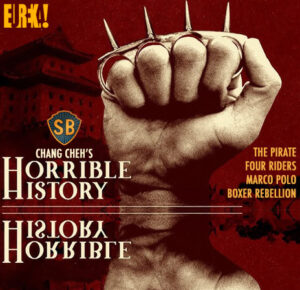
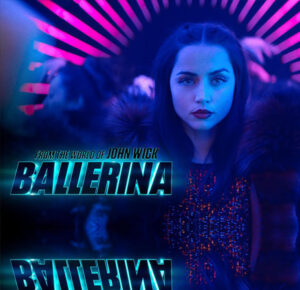
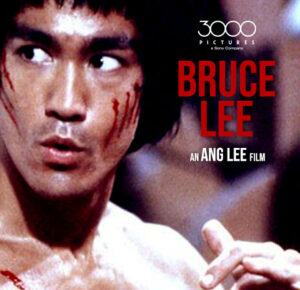
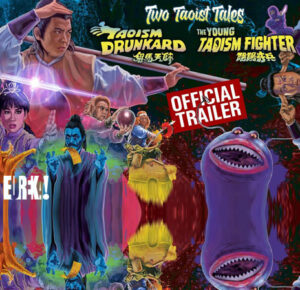











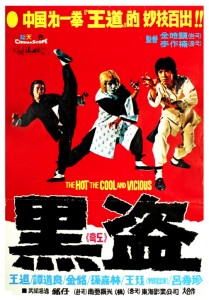






2 Comments